Our BE College and the Albert Hall (Coffee House)
@Jayanta Majumdar, 1963 Metallurgical Engineering
Though standing with its pride on 16, Bankim Chatterjee Street, we call it Coffee House (College Street). Built in 1876, it was a historic building, the Albert Hall, built and named after Prince Albert. Right at the center of Kolkata, at stone’s throw distance from University of Calcutta (founded in 1857), and Hindu College (founded in 1817, later renamed Presidency College in 1855), soon it became a hub for political and cultural activity. In 1942, the Coffee Board of India transformed Albert Hall into a coffee house, renaming it again in 1947 as the Indian Coffee House. Since then, it served and became famous as a meeting place for intellectuals.
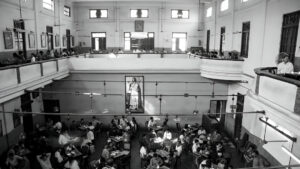
The introduction of Coffee House (or Albert Hall, as you might say) is important for my story.
To start with our hostel life, we all suddenly became too vocal in sharing expert opinions during our evening snacks. The group discussions were too diversified, and our topics changing frequently, however those were restricted to all জাগতিক ব্যাপার like the beauty of Madhubala, or Helen dancing with Geeta Dutt’s Merrraaa Naam Chin-Chin-Chu, or Chuni-PK Banerjee of Kolkata maidan, or Suchitra-Uttam’s Harano Sur, Saptapadi, or Hemanta-Sandhya-Manna-Kanika-Debabrata-Chinmoy-Suchitra, or so. Sometimes on Indian Tennis, but not because of our interest on this game but for Prof. AC Roy’s daughter who had a romantic relation with Premjit Lal. Beyond that, we could discus about India winning soccer gold in Jakarta Asian Games, or about West Indian cricket, and needless to say whatever was printed in Anandabazar or Statesman, we used to recite the same even if we don’t understood, and no value addition from our side. But also, for a change sometimes our agenda used to be our professor’s funny style of teaching, or about their beautiful daughters, ages ranging from 5 to 25.
And of course Alaka-Mayapuri-Jharna. Some of us were a little higher class in intellects. On any half-chance, they would bring Satyajit Ray’s Apu Trilogy, or Jalsaghar, or may be Madhubala in Mughal-e-Azam, or may be Anarkali if he rewinds back a little bit to 1953.
So, we had all kinds – the non-intellects and intellects, both.
There was a little shift during our 3rd year, a few of us were influenced by Sukdeb-da (1960 Civil) and his brother Buddhadeb who was my batchmate. By then we all were grown-up and soon would be recognised as “engineer cum intellectuals”. So, we made up our minds with a clear focus of vising the famous College Street Coffee House at least once in a month on either Saturday afternoon or Sunday morning. Sukdeb-da and Buddhadeb had their house close by, and the two brothers would use Albert Hall as their second drawing room and invite friends here. Slowly my crazily humorous classmate Sarat Ray too became a Coffee House fan.
Though we could not upgrade our group discussion’s agendas to any national or global issues like Fiedel Castro takes power in Cuba, Suez Canal crisis, Vietnam war, or Yuri Gagarin travelling on Vostok 1, completed one orbit of earth. We were not even aware that the first ever computer is already there in US market, the Bhabha Atomic Research Centre (BARC) already established, neither we are bothered about India’s first and second Five Year Plan. So our aimless show business at Coffee House is going in full swing, and with full spirits.
The same building houses famous Rupa and Co’s book shop. Those times, engineering books were costly for our pocket, and we would by them, if at all we do, from one of the secondhand shops in College Street pavements.
One day Sarat drags me out of my chair; I have to go with him to Rupa in search of a particular reference book. We climb one flight of stairs and enter the busy shop. Yes, Sarat’s book was available. and it would cost so so amount.
Sarat then asked for a second-hand copy! As if he suggested something vulgar, we two are almost physically thrown out. With our young blood sufficiently warmed up, we decided that we must avenge our open humiliation.
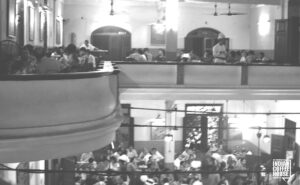
After a couple of months, during one coffee session at our prestigious venue of illustrious reputation, again Sarat drags me out from our adda table; he assures me that this time he would buy some new books only; on rules of certain specific sports and games and would learn how to play them.
The Rupa book shop guys probably had forgotten our faces, so natural as they face so many odd faces everyday. A very senior sales guy starts showing us one book after another – on rules and how to play a particular game. The Rupa guy must have given us close to an hour. And now it’s Sarat’s turn to comment. He raises his voice so that entire shop could hear him. He said in Bengali, which in English means: “I am totally disappointed. I wanted to know the rules of this game.”
Then Sarat clarifies:
Down below in this Coffee House, everyone is gambling with money, and Sarat too wants to jump into this “taka-niye-chhinimini” games. But what are the rules to play this risky but exciting sports?
“You disappoint me Rupa”, Sarat says. We turn back, leaving behind us a stunned shop. Back at our cofee table one floor below, a happy Sarat and a bemused me order for our black coffe priced at 40 Naya Paisa a cup.
Time does not stop, so as our new new ideas. I fondly remember my hostel no 9 of 1960-61 days when my second-year room mate Sarat, was slowly upgrading himself to a philosopher-poet level. Wearing the philosopher hat, Sarat will carry a volume of Bertrand Russell, stop a passer by, and quote from Russell. His favourite quote however was: “If your intentions were honest, you can even squeeze the breaststroke of a convent nun.” The newly “born” philosopher is not bothered if the passer by at all understands his quotes. But we were so excited, though there was no convent within miles of our college campus!

Sarat (Ray) in short, was a remarkable classmate / roommate of mine. Being in different hostels in our first year, that may be the reason I did not know him that well initially. But I had two Roys as my roommates in our second year (1960-61) in hostel no 9. Sarat had an acute sense of humour. And cerebrally being a notch above many of us, he would play some cat and mouse game with his simpler (সহজ সরল ছেলে) batch mates. While one roommate, the brilliant Robin, the academic type, later became the Director/Principal at NIT, Durgapur, but for Sarat, it would be big volume of work if try to write.
For Sarat, in short:
In 1961, campus hostels were celebrating centenary Rabindra Jayanti; and those seniors who used to sing only filmy songs being weekly visitors at Jharna talky, suddenly switched over to Rabindrasangeet to impress the campus girls. For our hostel 9 function, our Sarat raised his hand and was allowed to deliver a speech. He stands up with a rose in hand and says he would say a few wards on Gurudev: Evening approaching fast, sky was dark with cloud, wind is strong. And rain starts.
The poet is ecstatic now and sings his famous lines (according to Sarat) — Dum Dum Diga Diga Dum Dum Diga Diga …… Our Sarat swings his hip and sings in his flat voice. Pandemonium breaks out. Some seniors rush in and grabs his shirt collar. But our Sarat is cool. “Is it not a Tagore song? Sorry, aapnarai-to gaiten? Aajkay meye potanor jonney Robithakur dhorechayn?”
Year 1967, I am at my Hide Road factory, received a telephone call from Sarat that on my way back I must drop at a Dharmatala address. I should be the witness at his marriage registration at 5-30 this evening. So, I was there as witness. He married a girl with marked naxalite leanings, and against his family’s wishes. The girl Alokona looks simple and fearless. His parents seem to be staunch leftists. The Registrar is already there, waiting for the witness from girl’s side. He was Prof Hiren Mukherjee, the Member of Parliament for 7 times. After the signing ceremony, we all chat for half an hour over tea and singara. Sarat explains, Marxists believe in austerity.
Sarat who explored many avenues but then remained a happy floater with a teaching job in the NIT Durgapur. After a year the news comes that Sarat is a father now. One Saturday, I take a train for Durgapur and land at Sarat’s quarter in NIT campus. Found the little boy with an impressive name “Sagnik”, that is born with fire inside. Alokana had dreams in her eyes. She says her Sagnik would be a wellknown name in the classless communist world, from Russia, to China and to India by then.
Alokana, the mother’s instinct was half right. Our Sagnik is about 55 now. He is the most high profile non-Chinese but a Chinese citizen who live in mainland China. He is the CEO of a group of companies that is among the dozen largest business houses of China. His foreign charm attracted the only child, a daughter of this “Chinese GD Birla” to fall in love with Sagnik and marry him. Sagnik’s mother wanted him to be a great global Marxist. He has fulfilled his mother’s dream with a slight variation. He has become the biggest non-Chinese capitalist in today’s China.
Dear Sarat,
Where are you now?
Jayantamet.
*******
Taller Wife and Short Height Husband
I believe that Husbands in general are the useless 50 percent of a married couple. It is debatable of course. However, from my own observations, husbands from rural south 24 pargana may top the chart on this count. If any recorded comparison data is available, someone can do his or her Ph.D on this social inequality.
Husband of our maid was proud that his wife was a working woman, who has even transferred ownership of her village house, that her father gifted to her, to her husband, whom if describe in short, was a scoundrel. And now the husband frequently threatens to expel her from the property that she had from her father. The hubby plays card whole day when his wife is slogging at our houses as a maid to make a living for all, including for the worthless hubby. Our Maid financed a rickshaw for him. So, the man is a Rickshaw puller, who however very rarely is on the paddle. His latest demand was to buy him a power-driven rickshaw, to enhance his image, that he would never use to earn few extra bucks for the family.
In another example, we had a nice hard-working couple from Sundarban at our Delhi house for domestic supports. They both were serious in their jobs, and also trustworthy. But one funny incidence revealed that this man too was an MSP (male chauvinistic pig).
We were a gated community, guarded by ex army and ex police guys. They introduced the system of I Card for each domestic employee to be shown at the gate for entry. And Bagha, the Husband along with his wife comes to our afternoon tea table with a couple of forms, for our validation signatures. A simple form both in Hindi and English, with card owner’s photograph, and below the photos, would mention their height and bodyweight
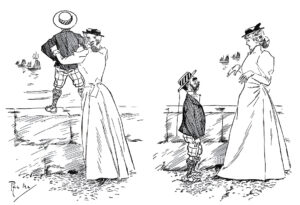
Now the dispute starts:
Bagha (Husband): Dada, what’s this? Your security man wrote my height as 5 ft. 4 inch, but my wife Pramila is 5 ft. 7 inch. Dada, I tell you, please don’t sign and approve this form.
Indira (my wife): why? How would you enter our premises without your Dada’s signature? You wont then get your entry cards. Whats wrong in the forms?
Bagha: Didi, just see, Premila is taller than me, she is 5 ft. 7 inches, and I am only 5 ft. 4 inches!
Indira: OK, OK, please stand side by side, let me see.
And we find Pramila is truly taller than her husband.
Bagha: Its impossible. I am the husband, how can a husband be shorter than his wife?
So, there is a stalemate. And a bemused silence around our room.
Then suddenly I remember; I am a good manager for the last 40 years. My job is to manage and deliver.
The two sheets of papers still stairing at me from the table, waiting for my signatures.
I changed Pramila’s height reducing from. 5ft 7 inches to 5 ft 5 inches and then pick up Bagha’s Form and increased his height by 1 inch to the same 5ft 5 inches.
We all are happy that the crisis is over. But an honest Indira regrets that TRUTH becomes the casualty in this process. Superiority assertions by Husbands over their much superior wives going on unabated in our rural societies. a pity.

*******
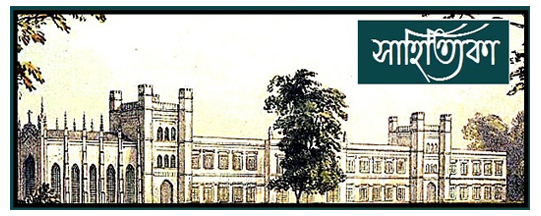
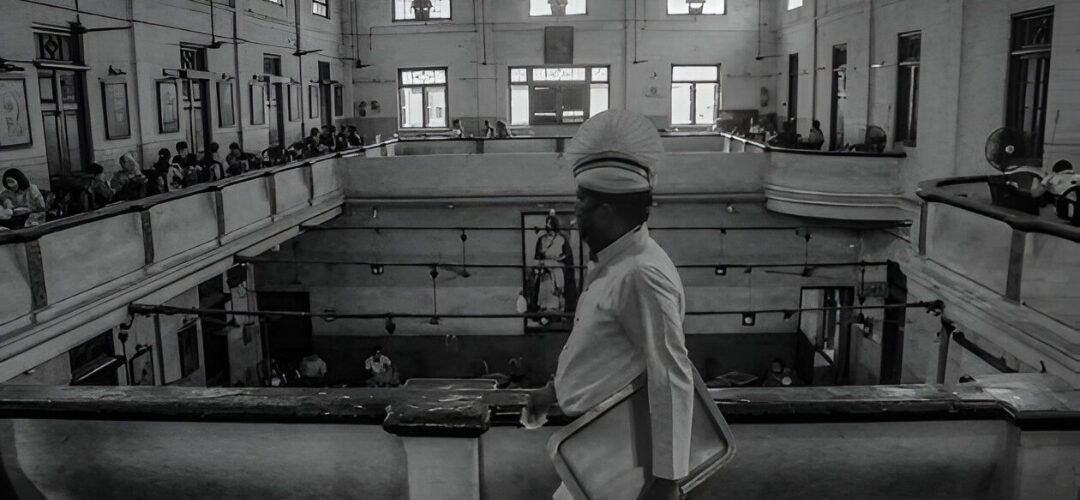
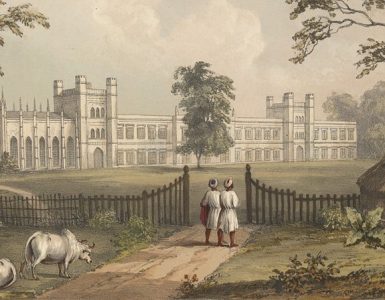
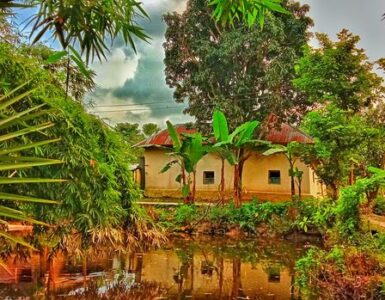
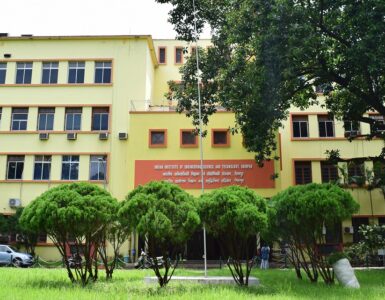










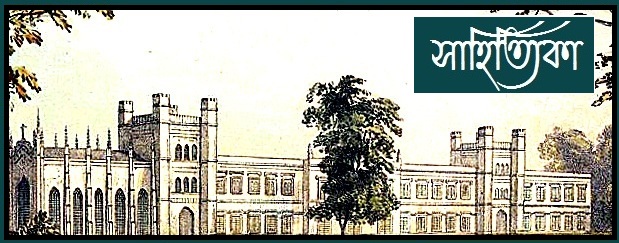
I passed in 1969. During our time, Adda in coffee house not popular among my friends. In fact, some of our friends tried but the discussion was really of different nature. In one week, he found the discussion was going on a poet of a very unknown country in a very strange language. For one week he started reading on the poet and the country as much as possible but in the next week he found the discussion had completely changed to another unknown country. He tried to visit several times and then left.
In our fifth year, in maidan, small groups of young boys and girls started different performances. Among very few girls of our college no body attended. Gradually, boys of our college also stopped visiting. Of course, gradually, such programmes of other colleges also stopped. During that time, political environment of Bengal was changing that affected most of the college students and overall future of Bengal.
Most of us also didn’t have much money to visit regularly. Ultimately, a restaurant was started near first gate. Some of us gathered there occassionally. Of course, adda in our hostels on various topics were more enjoyable.
আমার কফি হাউস দেখা ৭০ এর দশকে, তখন শুনতাম কফি হাউসের সেই গ্ল্যামার অনেক কমে গেছে কারণ পশ্চিমবঙ্গে তখন বিপ্লবের জোয়ার এসেছে, আর হঠাৎ করে গজিয়ে উঠা অনেক বিপ্লবী ছাত্রছাত্রী গিয়ে অহেতুক বাজার গরম করায় আনন্দ পেতো, আর সত্যিকারের বুদ্ধিজীবীরা ধীরে ধীরে আসা কমিয়ে দিলেন।
যাই হোক, ৬০ এর দশকের চিত্র।
লেখাটি আমার ভালো লাগলো।
ধন্যবাদ